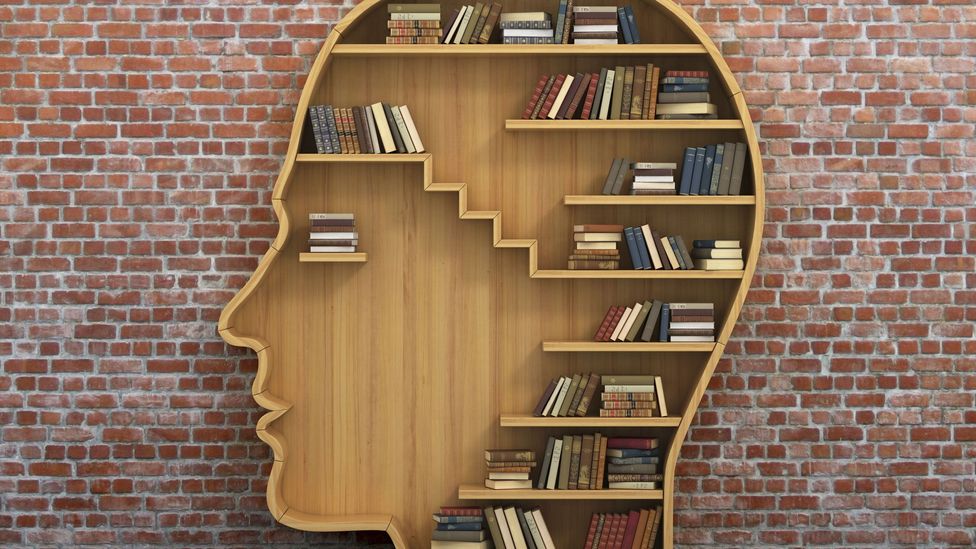21st Century Innovation
As we move into the digital era further, mediums for digesting information have aligned with this change. Auditory learning – specifically through podcasts and audio books – has transformed the culture. What’s clear is that people have developed a preference for hearing what they would like to learn about; some good reasons for this are that it is more convenient during times of focused attention like driving; and the sounds of actual human voices may trigger an increased sense of curiosity, which consequently might allow someone to retain more information. So if audio learning is your preference, here’s a link to Audible: an audiobook and podcast service by Amazon with an abundance of options to choose from. What’s nice is they have a free trial for 30 days, and you can cancel at any time if you’re not satisfied. Take advantage.
Although some might believe the classic medium is becoming outdated, there is still a market for it, and for good reason. Many people still love physical books as a tangible source of information. As opposed to online reading, you can bookmark specific sections you might want to go back and refer to. Growing up I also loved reading books – I just didn’t have the patience to finish anything. Nonetheless, the feeling of a physical book in my hand, knowing it took time to create and effort to distribute, has always been a part of the enjoyment felt in reading. It’s one of those products that makes me feel fortunate to have grown up in the 2000’s before the digital takeover. However, regardless of the format you choose, this habit will serve you well. Let’s get into the top 5 benefits of reading:
- Physical books are better for your eyes. This first one is a specific contrast between mediums of reading, and as a preface I just want to say that physical books are my preference. It’s all too common for us to be on our devices throughout the day. I believe it’s important to take breaks from this not only to reset your dopamine levels, but also to simply relax your eyes. Reading a book offers you the chance to do this. It is an alternative to the device method of reading material (like a Kindle). Constant blue light exposure from screens (like the one mentioned and especially our phones) disrupts your circadian rhythm at night and could damage your vision over time. In a strictly biological sense, reading classic books are in itself one of the overlooked benefits of reading.
- Improves memory. Personally, I’ve always had a hit or miss memory; sometimes it was on point, but more often than not it was lacking (both short and long-term). Not to discount other habits in my life that have had a part to play, but as I began reading more often over a year ago, I’ve been able to remember more information I learn through books, media, work and even trivial moments in conversation. And there’s research to back this. APA PsycNet stated that a meta-analysis of 197 studies showed a significant moderate correlation between reading and working memory. This is irrespective of types of reading material (fiction or non-fiction). I found this to be one of the more surprising benefits of reading.
- Increases your knowledge of the world. No matter who you are, there is a topic out there that you’re interested in learning more about. It’s an innate desire we all share to want to learn more about the complexity of the world, and how the world functions. Reading stimulates that desire to learn. And although fiction has its benefits, non-fiction is what really offers you entry into the world of whatever topic you’re curious about. Additionally, a book provides a concentrated and often reliable source of information on a topic. Many authors use accumulated life experience (in a personal and professional sense), as well as relevant data to validate their points and merge related sub-topics. This all ensures that the information you learn is informative, giving you a better understanding of one of the many facets that make up the world.
- Reduces stress. Sometimes if I’m feeling depressed or anxious, I try to distance myself from my emotions by reading. By the time I’ve read a page or two, my mind is already somewhere else and I’ve reduced a lot of tension. A cognitively demanding, peaceful habit like this serves as both productive and a means of bringing you back to your senses.
- Has the potential to improve your life. If you’re not just reading for entertainment (in the sense that you’re not intending to put your knowledge to use but only to pass time), there are lessons and information that could positively impact your life. This of course depends on you. If you’re reading about how to build a business, but you don’t actually apply what you learn in reality, you’re wasting your time. “Yeah, but now I know how to do it”… okay, so do it. A really impactful book I read called The Way of the Superior Man has a lesson that comes to mind. David Deida reminds you that we all have fears, and we should be able to accept that about ourselves; but what will transform you into a mentally stronger person is to push just beyond that edge, that sense of fear. Whenever I get into a situation that makes me anxious, I keep this lesson in mind and do what my mind says not to. Mindset, personal finance, health, relationships: any practical benefits of reading are probably the most important of all takeaways for this habit.
Sources
- Peng, P., Barnes, M., Wang, C., Wang, W., Li, S., Swanson, H. L., Dardick, W., & Tao, S. (2018). A meta-analysis on the relation between reading and working memory. Psychological Bulletin, 144(1), 48–76. https://doi.org/10.1037/bul0000124
